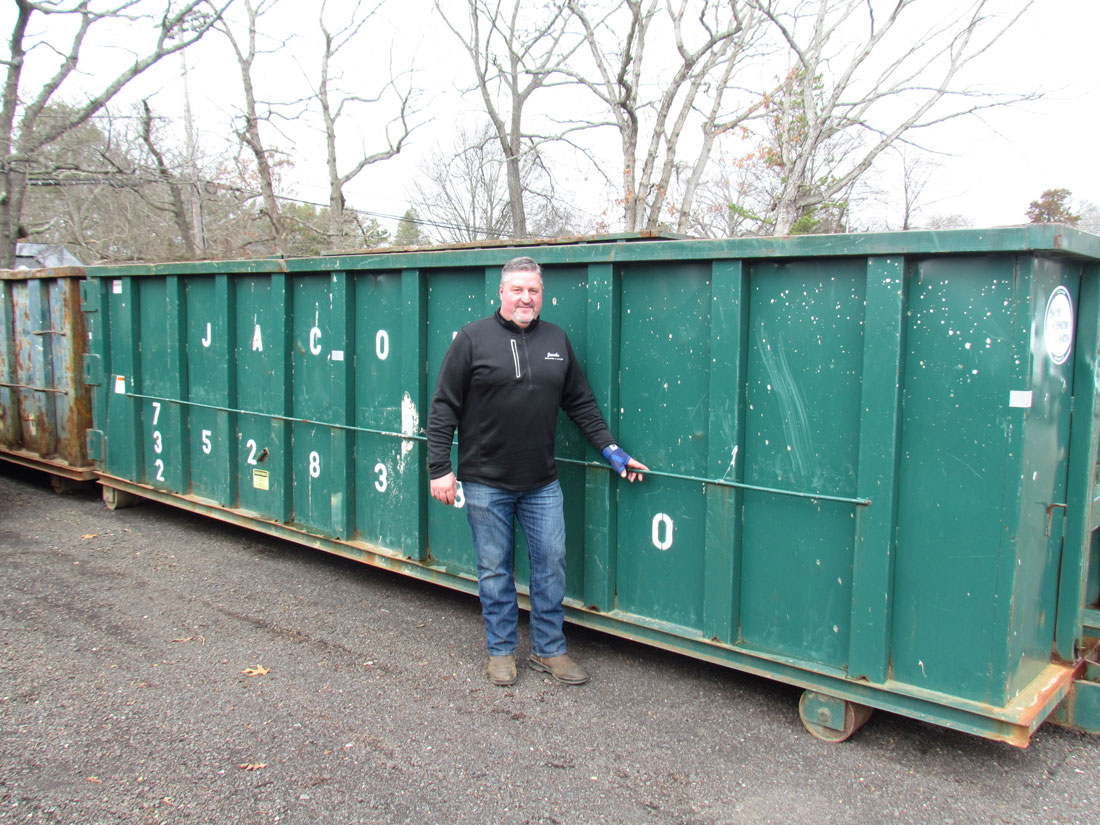Dumpster service is a vital aspect of numerous jobs, from home renovations to massive building and construction, requiring a thorough understanding of the process to stay clear of expensive mistakes and guarantee successful project execution. Picking the right dumpster size, comprehending rental costs, and considering logistics and regulations are necessary steps in the process. Additionally, knowing what can and can not go in a dumpster, preparing the website for distribution, and obtaining necessary permits are critical parts of a successful dumpster rental experience. By comprehending these basic concepts, you'll be well on your method to a trouble-free project, and a deeper expedition right into the details will certainly disclose much more important insights.
Choosing the Right Dumpster Size
Typically, house owners and professionals alike undervalue the relevance of selecting the ideal dumpster size for their project, which can lead to costly consequences
This oversight can cause a dumpster that is either as well tiny, bring about multiple trips to the land fill, or also large, squandering valuable space and resources.

To stay clear of these concerns, it's important to precisely approximate the volume of waste your project will generate.
Consider the type of materials you'll be disposing of, the dimension of the area being refurbished, and the period of the project.
A basic general rule is to overstate by 10-20% to represent unexpected waste
Understanding Dumpster Rental Costs
Several aspects add to the overall expense of dumpster rental, making it important to comprehend the https://piedmonttriaddumpsters.com/dumpster-rental-jamestown-nc/ pricing structure to spending plan precisely for your project.
The size of the dumpster is a substantial factor, as bigger dumpsters call for more products and labor to produce and carry. The sort of particles you prepare to get rid of additionally influences the expense, as hazardous materials or hefty construction waste may call for special delivery and disposal procedures.
Additionally, the rental duration, location, and neighborhood regulations can affect the final expense. Some dumpster rental firms may bill extra for solutions like same-day delivery, weekend break delivery, or additional pickups.
Others might supply discount rates for lasting services or bundled solutions. To obtain an accurate estimate, it's important to supply thorough info concerning your task and requirements.
Be certain to inquire about any kind of additional fees or charges when requesting a quote to stay clear of shocks on your final bill.
Dumpster Rental Period and Logistics
When intending a dumpster rental, it's just as important to consider the logistics of the rental period, as this can significantly influence the general success of your job. This includes identifying the excellent rental period, which typically ranges from a few days to numerous weeks and even months, depending on the scope of your project.
It's vital to pick a rental duration that aligns with your project timeline to guarantee you have adequate time to finish the job without incurring additional fees
Additionally, consider the logistics of dumpster delivery and pickup Will the dumpster be delivered to a specific place, such as a driveway or building and construction website? Are there any kind of access restrictions or special needs for the shipment and pick-up process?
Understanding these details will assist you prepare accordingly and stay clear of any kind of potential issues or delays.
Lastly, make sure to ask about the rental company's plans regarding dumpster relocation, if needed, and any type of extra charges related to prolonging the rental period.
Permits and Regulations to Consider
The local municipal landscape is populated with policies and guidelines governing waste management, and your dumpster rental task is no exemption. Before you begin, it's crucial to recognize the permits and regulations that relate to your particular project. Failure to comply can lead to penalties, project delays, or even termination.
Some towns need authorizations for dumpster placement on public or private property. These licenses commonly include particular standards for dumpster size, positioning, and period. Furthermore, particular kinds of waste, such as hazardous materials or building debris, may undergo special regulations.
It's necessary to research and recognize the local regulations and allows required for your job. Your dumpster rental provider may be able to provide guidance or help in getting the needed permits.
Be sure to factor in the time and price of permits into your task timeline and budget plan. By doing so, you can guarantee a smooth and compliant dumpster rental experience.


What Can Go in a Dumpster
Understanding what can be disposed of in a dumpster is vital to a successful waste administration project Understanding what can and can not enter a dumpster aids protect against contamination, minimizes the risk of penalties, and assures a smooth job execution.
Most dumpsters can accommodate a large range of materials, including construction debris, family trash, lawn waste, and demolition products. However, there are specific items that are forbidden from being disposed of in dumpsters, such as hazardous waste, electronic devices, batteries, and fluorescent light bulbs.
Additionally, some items might call for special handling, like appliances, tires, and cushions, which may incur added fees.
It's vital to consult your dumpster rental provider for particular guidelines on what can be gotten rid of in their dumpsters. They can offer you with a comprehensive listing of acceptable and banned items, making certain that you remain in compliance with local regulations and guidelines.
Preparing for Dumpster Delivery
Site preparation is essential for a seamless dumpster shipment experience. Before the dumpster arrives, ensure the delivery area is clear of any obstacles, including autos, trees, and power lines.
A flat, degree surface is important for risk-free and efficient placement. Additionally, see to it the course to the distribution website goes to least 10 feet wide to accommodate the dumpster truck.
Measure the space where the dumpster will be put to confirm it fits comfortably. Think about the dumpster's measurements, including its length, size, and elevation, along with the swing distance of the truck's arm.
If you're not sure, talk to your dumpster rental provider for guidance.